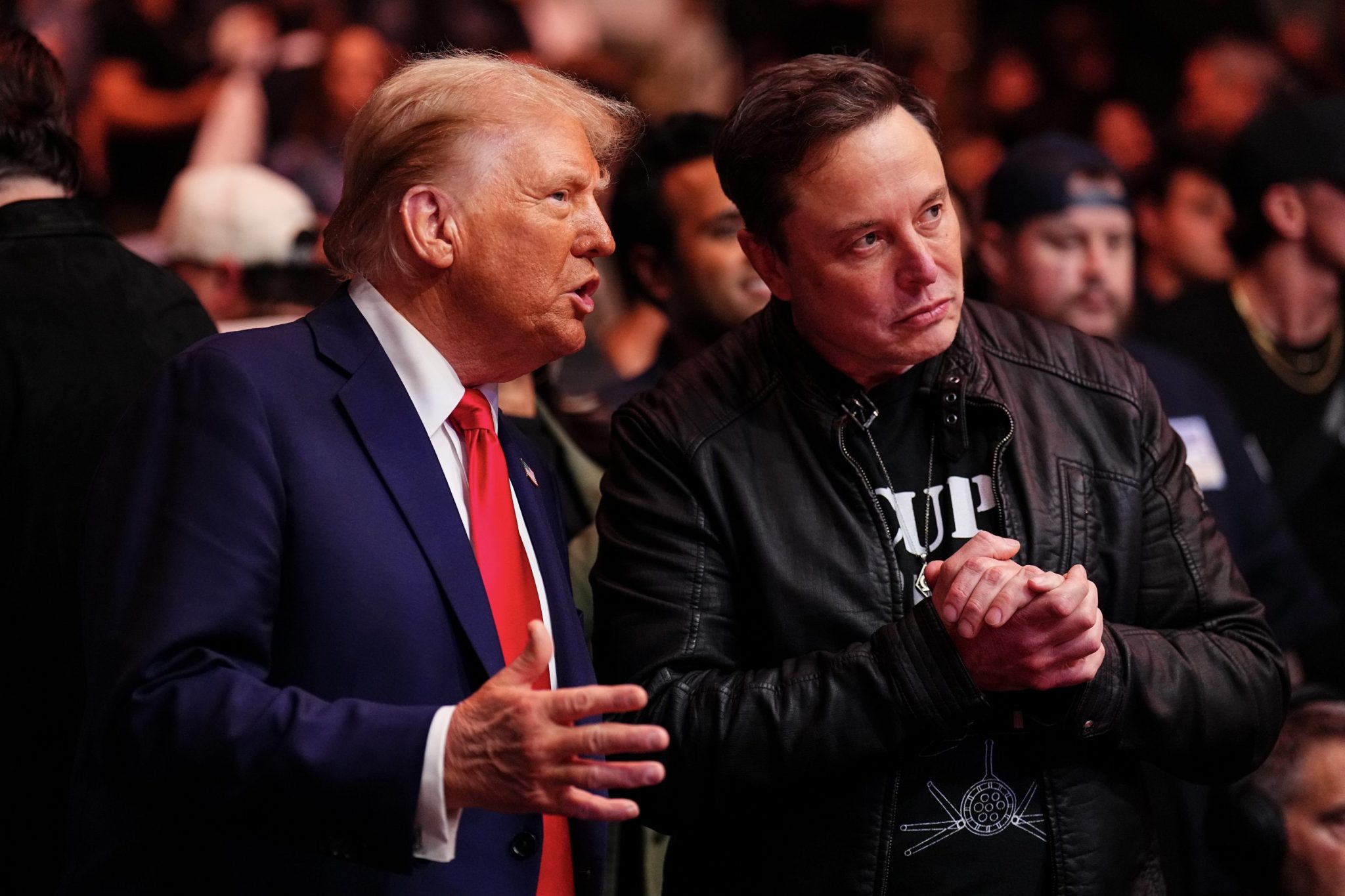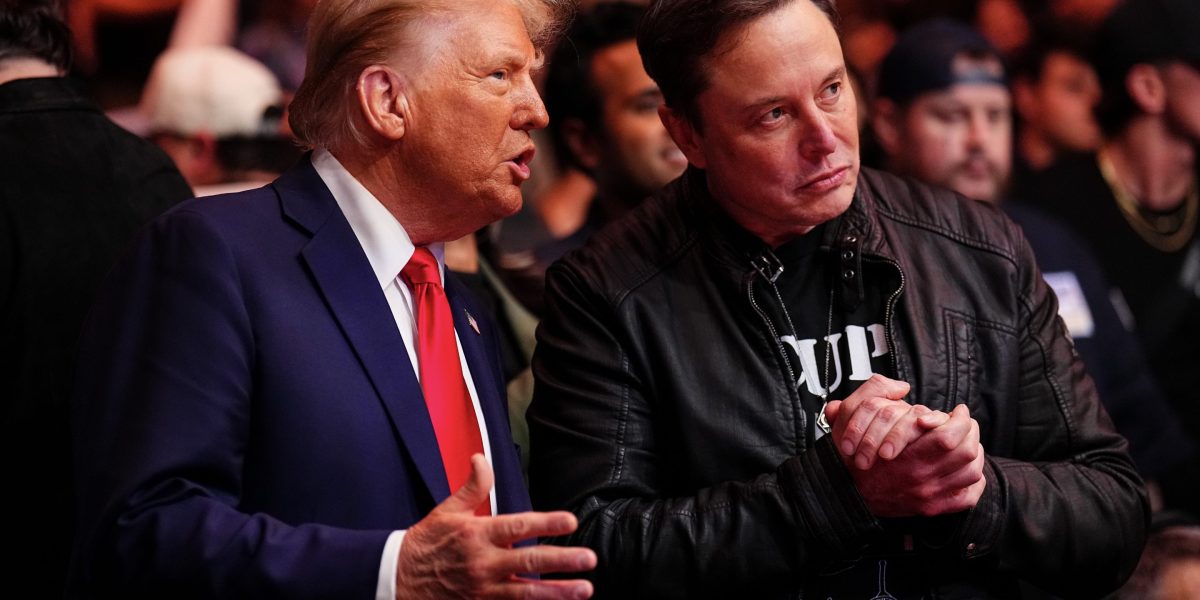
Elon Musk’s appointment by Donald Trump to lead a new department tasked with cutting government spending comes with a major wrinkle: Potential conflicts of interest.
Musk’s planned role clashes with his day job running his business empire, which includes electric car maker Tesla, rocket company SpaceX, social media platform X and AI startup xAI. Many worry that he will use his position in Trump’s inner circle, leading the Department of Government Efficiency (DOGE), to outmaneuver his own companies or hurt competitors.
Richard Painter, former chief ethics lawyer in the White House under former President George W. Bush and now a law professor at the University of Minnesota, told Assets that Trump’s decision to give DOGE advisory status rather than government status was likely strategic. According to Painter, the setup allows Musk and his DOGE co-chief, Vivek Ramaswamy, to avoid divesting their financial assets under laws that prevent federal employees from participating in regulation and contracts that could affect their personal financial interests.
But Painter added that advisory boards like DOGE still have to follow certain rules. They include making records publicly available, holding public meetings and allowing public participation. “Everybody knows that these people have conflicts of interest, yet they are advising the government and that’s okay, but you have to comply with transparency regulations,” he said.
Musk’s conflicts span most anything involving transportation and communications, and therefore the very same federal agencies in his crosshairs for budget cuts. His conflicts also include the fast-paced world of AI, which is increasingly underpinning critical technologies, shaping global power dynamics, and raising serious ethical and societal questions.
As venture capitalist and Trump critic Reid Hoffman recently wrote in Financial TimesMusk’s direct ownership of xAI creates a “serious conflict of interest in setting federal AI policies for all American companies,” and raises red flags about Musk’s influence on everything from government contracts, to regulation of AI companies, to restrictions on technology exports.
And that’s just the beginning. Here are some of the main AI-focused conflicts worth paying attention to:
AI policies via AI ‘czar’
Trump is considering appointing an AI czar to coordinate federal policy and the government’s use of the new technology, Axios reported. Musk is expected to work closely with any appointed AI czar, who will have marching orders “to keep America at the forefront of AI” and “collaborate with DOGE to use AI to root out waste, fraud and abuse, including entitlement fraud. ”
Could Musk steer government AI contracts to his own company, xAI? He could, said Richard Schoenstein, vice president of litigation at the law firm Tarter Krinsky & Drogin. In theory, Schoenstein explained, Musk’s xAI could benefit from favorable contracts, but he could also pressure the government to crack down on its competitors like OpenAI and Anthropic. He called Musk’s dual role as businessman and Trump adviser a “dangerous combination.
Musk, for example, has long complained about government red tape hurting his companies. Now he could use his new DOGE role to remove any government obstacles to xAI, AI in general or his other business interests, Schoenstein said.
However, Musk’s position on artificial intelligence is not always straightforward. For example, he has supported certain artificial intelligence regulations like California’s ultimately doomed SB-1047 bill, which aims to establish safety standards for advanced artificial intelligence systems.
But Musk still has an interest in future government decisions around AI, including how AI companies can access data. Last month, for example, X quietly updated its privacy terms for Grok, the AI chatbot developed by xAI, to clarify that it uses X data to train xAI’s models. As head of DOGE, Musk could support policies that allow broader use of data for AI development, including potentially loosening restrictions on user privacy.
Schoenstein also worries about the vast amount of private information Musk has collected about American citizens through his various businesses. X, xAI and his Starlink satellite Internet service collect vast amounts of information about what users look at online and who they are. He fears that Musk, because of his alliance with Trump, may now be more inclined to share that information with the government. “While some of the social media companies have historically taken a very protective stance on the privacy of their users, it’s dangerous to have a guy who owns X and owns xAI and owns a satellite system basically in lockstep with the governing administration,” Schoenstein said.
AI-powered self-driving
Whether Musk will use DOGE to benefit the future deployment of Tesla’s AI-powered self-driving cars is another question. For years, most recently at a demonstration in October, he has promised to introduce robotic axles that can carry passengers without drivers.
Musk’s position at DOGE may allow him to advocate more forcefully for relaxed regulations that benefit Tesla. For example, the National Highway Traffic Safety Administration (NHTSA), which oversees vehicle safety standards, has a major influence on Tesla’s Autopilot and Full Self-Driving (FSD) features. According to a Bloomberg report, Trump’s transition team is now looking to NHTSA policymakers to lead efforts on self-driving regulation, likely with the goal of relaxing rules to speed development.
Such a change would come at a crucial time for the self-driving industry, Schoenstein said. And it wouldn’t require getting rid of the agency. “You can just change the management” and install “a business-friendly head and that will reduce the enforcement bite,” he said.
Environmental policies that promote electric vehicles (EVs) are also critical to Tesla’s success. Musk’s DOGE role could help him shape those rules to favor Tesla, potentially by pushing for stricter emissions standards that benefit EV makers or by influencing how subsidies and tax incentives are awarded. For clean transportation advocates, this is a good thing. But Musk has also supported cutting Biden’s $7,500 tax credit for electric cars, which could affect other automakers.
xAI’s Memphis supercomputer
Another potential conflict of interest involves Colossus, xAI’s new supercomputer in Memphis. Musk has claimed it will be the world’s fastest AI supercomputer and said last month he planned to double its computing power.
It would take one lot of electricity. Earlier this year, the local utility agreed to supply xAI with 150 megawatts, subject to approval by the Tennessee Valley Authority, a federal utility. TVA approved the extra electricity earlier this month, despite civil rights groups and environmentalists expressing concern about the resulting strain on the city’s power grid and the area’s already poor air quality.
The authority is governed by a board appointed by the president and confirmed by the Senate. Most of the current board member’s five-year term will expire under the incoming Trump administration, opening the door to packing it with members friendly to Musk’s interests. “There is definitely concern about that relationship,” said Amanda Garcia, a senior attorney at the Southern Environmental Law Center. Assets.
Her organization has complained that xAI has already installed natural gas-fired turbines at the former factory in Memphis where xAI’s supercomputer is located. The generators supply electricity directly to the plant without being dependent on the public electricity grid.
Memphis residents and environmental groups have raised concerns about the pollution generated by these gas-powered generators. Furthermore, xAI may have installed and operated them without securing the necessary permissions, according to Garcia. The local agency has referred the matter to the EPA, which is currently reviewing the matter. In particular, EPA would be a key agency under scrutiny in DOGE’s oversight.
Garcia pointed out that Trump’s pick for EPA commissioner, Lee Zeldin, has already mentioned wanting to make the United States a global leader in artificial intelligence. That statement, Garcia said, “seems like an odd thing for an EPA administrator to say,” but likely music to the ears of Musk and other AI entrepreneurs.
Conflicts of interest are not new
Musk’s conflicts of interest through DOGE may seem unprecedented, but that has been a problem before when it comes to outside advisers. It has even extended to AI matters under both Trump’s first administration and President Biden, said Marc Rotenberg, president and founder of the Center for AI and Digital Policy.
Former Google chief Eric Schmidt, for example, while still a technical adviser to Google parent Alphabet, became chairman of the National Security Commission on Artificial Intelligence in 2018, which advises on national AI strategies. As of 2016, he was also involved in the Defense Innovation Advisory Board, which connects the technology companies with the Pentagon. Additionally, during the Biden administration, Schmidt co-chaired the National Security Commission on Artificial Intelligence.
In response to criticism about conflicts of interest in his role on the Defense Innovation Advisory Board, Schmidt said emails and other communications were screened. He therefore would not see or be briefed on any business between Google or Alphabet and the Department of Defense, he said in 2018.
As for Musk, Rotenberg said, “he shouldn’t personally benefit from the government reform proposals that he’s making — I don’t think there should be any doubt about that.” Then he added that the problem is much bigger than one man. “This has been a long-standing theme, particularly in the technology sector, for many years.”
